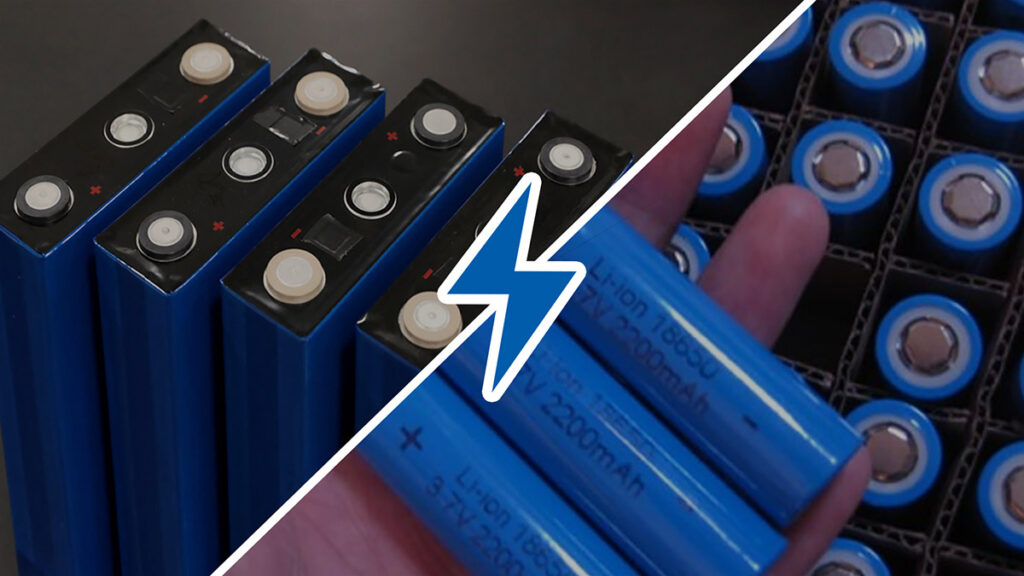When it comes to energy storage, LFP (Lithium Iron Phosphate) batteries and Lithium-ion batteries are two popular choices. In this article, we will explore the characteristics, differences, and advantages of both battery technologies. While we will cover important details and FAQs regarding both types, we will emphasize the benefits of LFP batteries over Lithium-ion batteries. Let’s delve into the world of energy storage and discover why LFP batteries are gaining prominence in various applications.
Understanding LFP Batteries
LFP batteries, also known as Lithium Iron Phosphate batteries or LiFePO4, are a type of rechargeable battery known for their high energy density and stable performance. These batteries utilize lithium iron phosphate as the cathode material, offering exceptional safety, long cycle life, and excellent thermal stability. Here are some key characteristics of LFP batteries:
- High energy density: LFP batteries provide a remarkable energy density, ensuring efficient energy storage in a compact form.
- Long cycle life: With an extended cycle life, LFP batteries can withstand thousands of charge-discharge cycles without significant capacity loss, making them ideal for long-term use.
- Enhanced safety: LFP batteries are highly stable and less prone to thermal runaway or combustion, offering a safer energy storage solution.
Exploring Lithium-ion Batteries
Lithium-ion batteries are widely used in various applications due to their high energy density and light weight. However, it is important to understand the differences between Lithium-ion batteries and LFP batteries. Here are some key aspects of Lithium-ion batteries:
- Different cathode materials: Lithium-ion batteries commonly use cobalt oxide or nickel manganese cobalt oxide as the cathode material, which offers higher energy density but may compromise safety and reduce cycle life.
- Moderate cycle life: Lithium-ion batteries typically have a moderate cycle life, meaning they may degrade over time and require replacement more frequently.
- Potential safety concerns: Compared to LFP batteries, Lithium-ion batteries may be more prone to overheating, thermal runaway, and potential fire hazards.
Advantages of LFP Batteries
While both battery technologies have their merits, LFP batteries have gained favor in several applications due to their specific advantages. Here are some points highlighting the benefits of LFP batteries:
- Enhanced safety: LFP batteries are considered one of the safest options available, operating at lower temperatures and maintaining stability even under extreme conditions.
- Longer cycle life: LFP batteries offer an extended cycle life, significantly reducing the need for replacement and ensuring long-term reliability.
- Wide operating temperature range: LFP batteries can operate effectively across a broad temperature range, making them suitable for various climates and environments.
- Environmentally friendly: LFP batteries are more environmentally friendly compared to some other battery types, as they do not contain toxic materials such as cobalt.
Frequently Asked Questions (FAQs)
Here are some commonly asked questions regarding LFP batteries and their answers:
Q: Are LFP batteries suitable for solar energy storage systems?
A: Yes, LFP batteries are an excellent choice for solar energy storage due to their high energy density and long cycle life.
Q: Can LFP batteries be used in electric vehicles?
A: Absolutely. LFP batteries have a proven track record in electric vehicles, delivering superior performance and longer lifespan.
Q: Are LFP batteries more expensive than Lithium-ion batteries?
A: Initially, LFP batteries may have a higher upfront cost, but their longer lifespan and lower maintenance requirements make them cost-effective in the long run.
Other Important Considerations
While LFP batteries have numerous advantages, it is crucial to consider factors such as voltage, capacity requirements, and specific application needs before making a decision. Consulting with a professional energy storage expert can help determine the most suitable battery solution for individual projects.
Conclusion
In conclusion, the choice between LFP batteries and Lithium-ion batteries depends on various factors, including safety, cycle life, and specific application requirements. LFP batteries offer superior safety, longer lifespan, and excellent thermal stability compared to lithium-ion batteries. While lithium-ion batteries have higher energy density, the advantages of LFP batteries make them an ideal choice for applications where safety and longevity are paramount. Consider investing in LFP batteries for reliable and efficient energy storage solutions.

